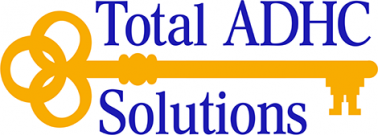CACFP Meal Delivery Q&A
Child and Adult Care Food Program (CACFP) Meal Delivery
Under the Non-Congregate waiver, can CACFP operators deliver meals directly
to children or adult participants’ homes?
Yes. If the CACFP operator determines there is a need and it is logistically feasible to deliver meals directly to homes, it may do so with State agency approval and adherence to all Federal confidentiality requirements. If applicable, any State agency
meal service times would also have to be waived, per the Meal Service Time nationwide waiver. Delivery could be completed by mail or delivery service, or handdelivered by CACFP staff, volunteers, community organizations, or others. The State agency should consider the capacity of the CACFP operator to execute such an approach effectively, including meeting State or local food safety requirements. This option is only available to CACFP operators that provide care for enrolled children
and adult participants due to confidentiality and logistical requirements. Only meals delivered to enrolled children or adult participants will be reimbursable.
What funding is available for meal delivery?
There is no additional reimbursement for home delivery or mobile meals delivery, but related expenses, such as postage or delivery service fees, would be considered an allowable cost under the CACFP. Delivery costs could also be paid with non-program funds such as State or local funds, or private donations. 11. What are the requirements for initiating home meal delivery for a household? CACFP operators must first obtain written consent from households of enrolled children (this could include email or other electronic means) that the household wants to receive delivered meals. In addition, CACFP operators should confirm the household’s current contact information to ensure meals are delivered to the correct location. It is critical that CACFP operators protect the confidentiality of children and their households throughout this process. The National School Lunch Act and the Family Educational Rights and Privacy Act (FERPA) do not authorize release of household contact information for children without first obtaining the written consent of the child’s parent or guardian. The CACFP operator must make the first contact about meal delivery with the households of enrolled children, and adult participants, and must notify them if contact information will be shared with an external organization, for example, a local non-profit that will provide meal delivery. Once the CACFP operator receives written consent from the parent or guardian to release contact information, the information may be shared with other organizations involved with meal delivery.
Do home-delivered meals need to be shelf stable?
No. The type of meal offered will depend on the resources and capacity of the Program operator. Those that are able to prepare ready-to-eat meals and have the capacity to deliver meals daily in a way that meets State or local food safety requirements may do so. 13. Does the child or adult participant need to be present for home meal delivery? No. As long as the CACFP operator has obtained the household’s written consent to deliver meals and has verified the current address, the child or adult participant does not need to be present at the time of delivery. If the meals are shelf stable, no one need be present, as long as the address has been verified. Please consider State and local food safety requirements and best practices.
See the full Q&A Letter SP-14 2020s
